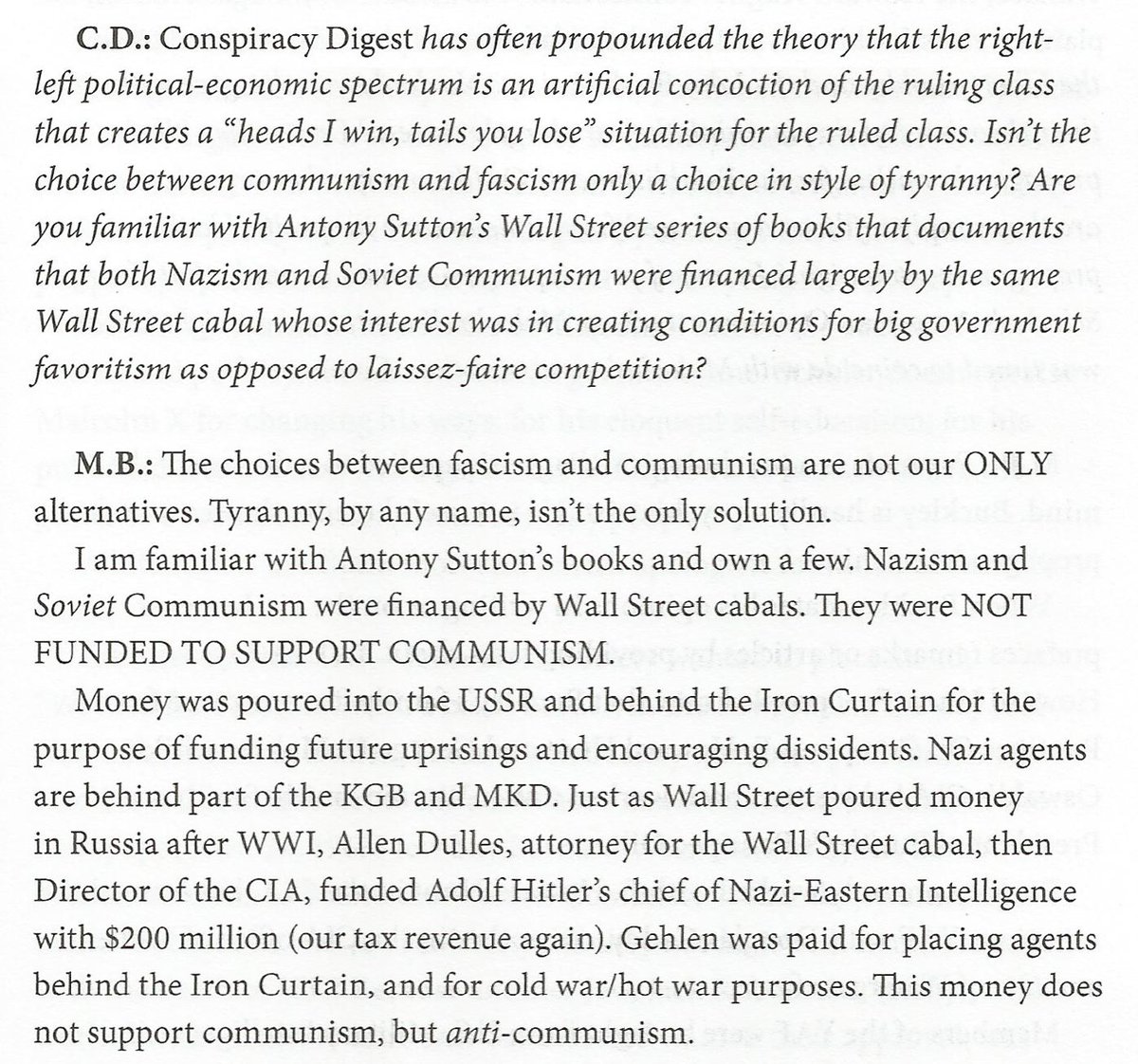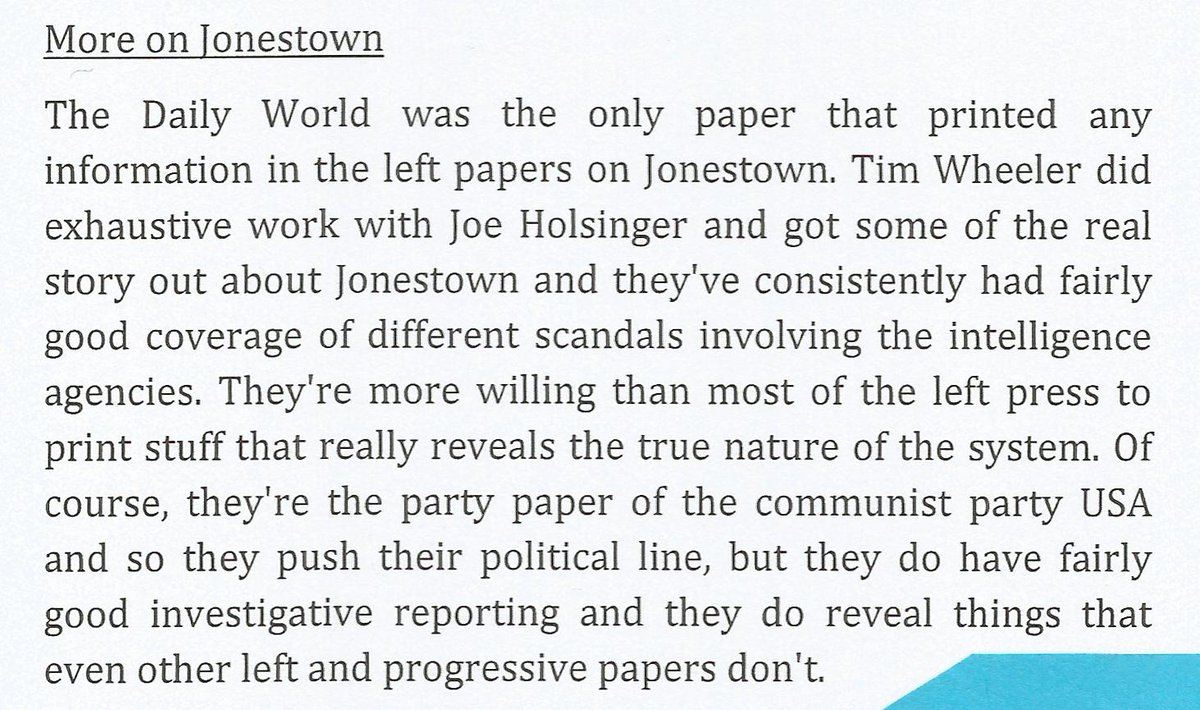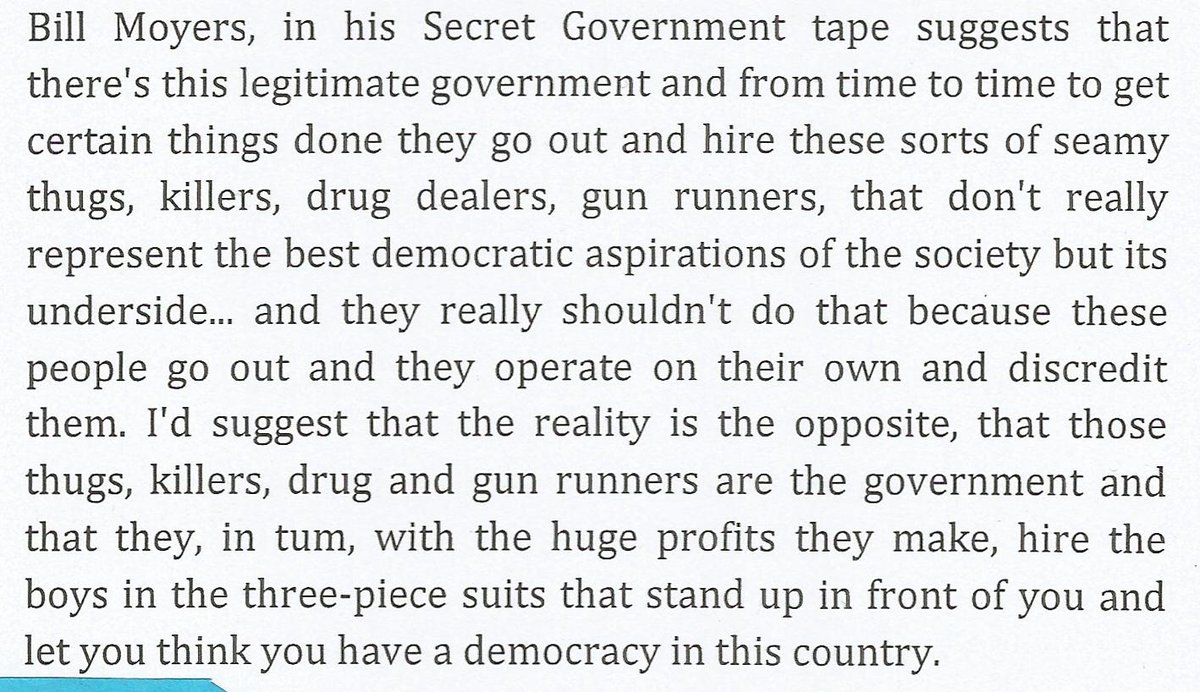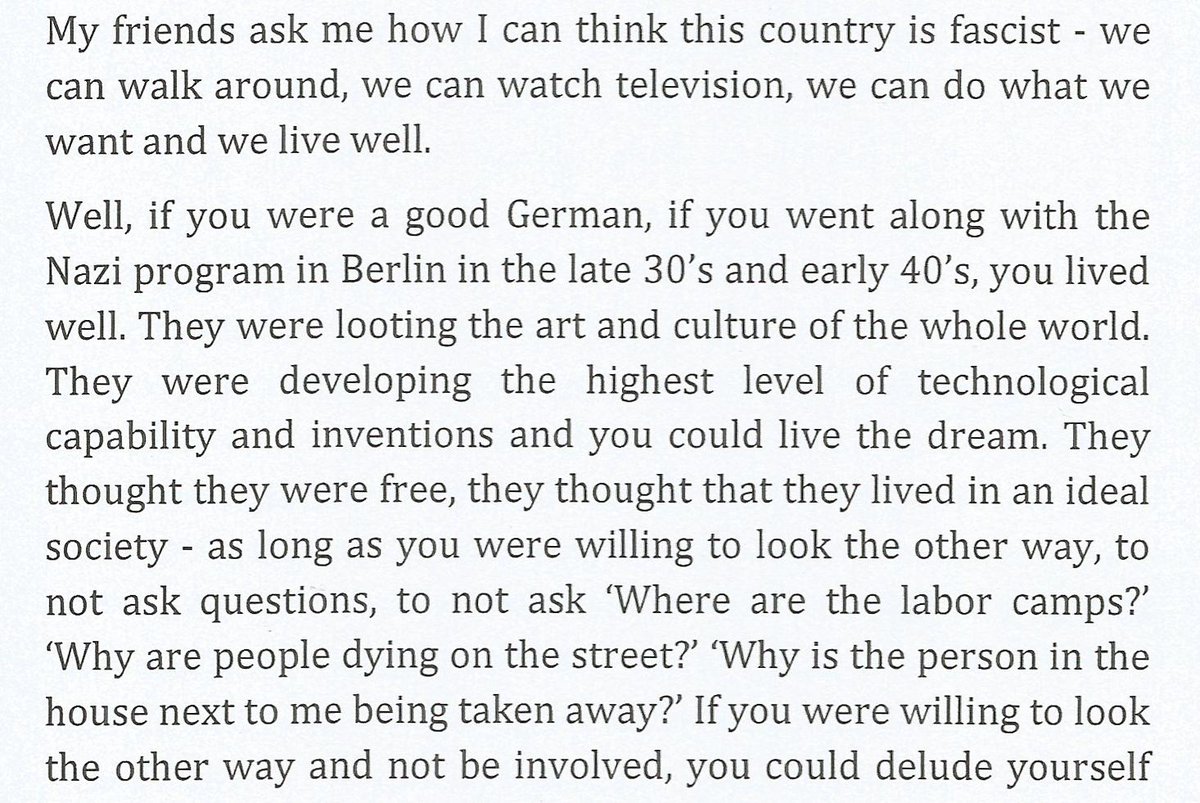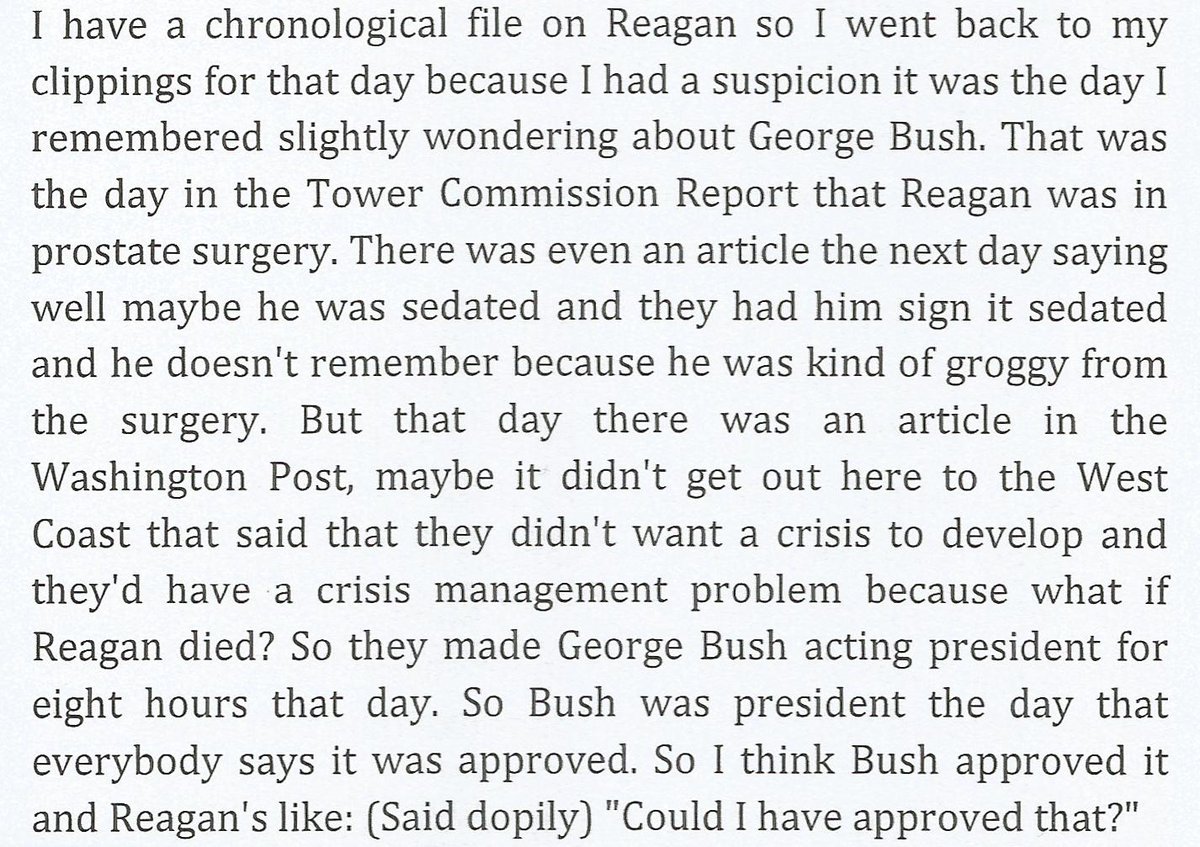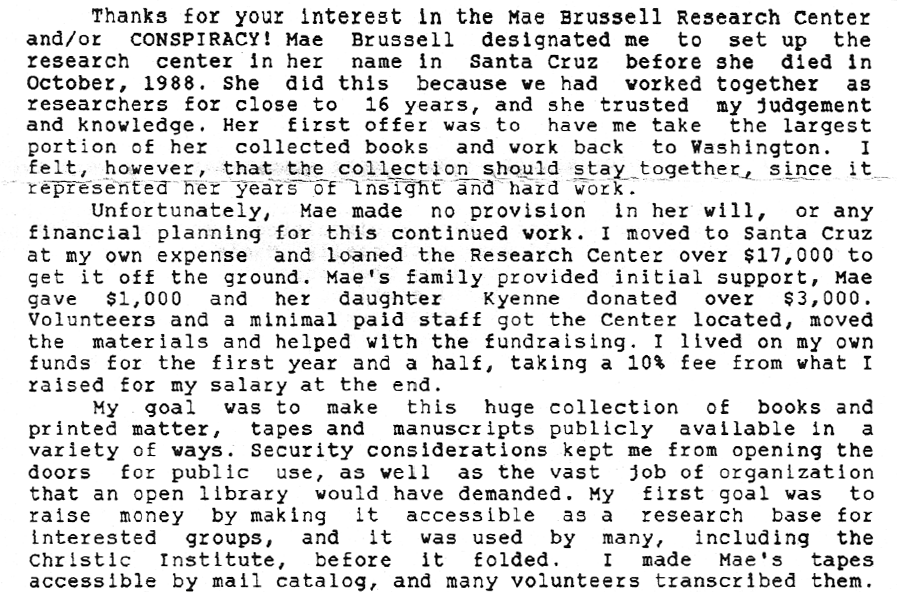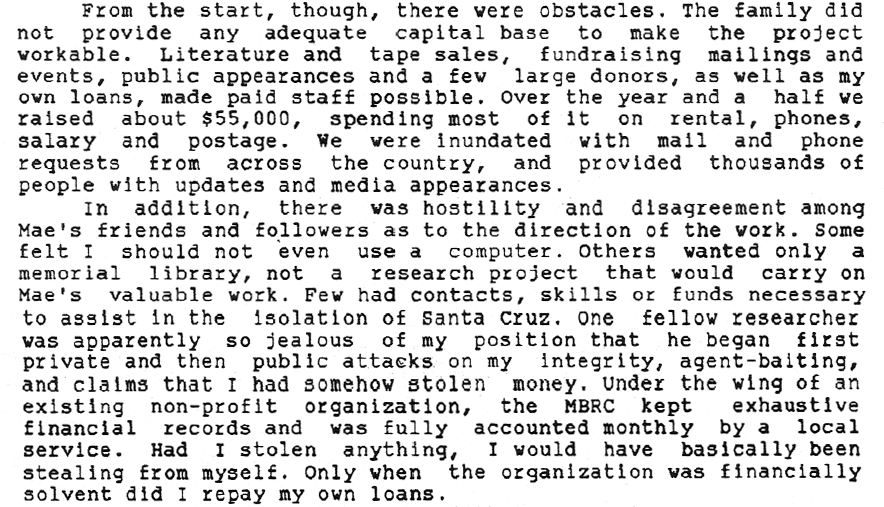I recently finished reading these two books by American conspiracy researchers Mae Brussell and John Judge. Here are some thoughts and observations.
First, some positive things. I think that this kind of conspiracy research is extremely valuable, and that the methods of Mae Brussell and her disciples are worth examining + emulating.
Mae Brussell’s work on the SLA, for instance, is excellent, well worth a read: http://www.maebrussell.com/Mae%20Brussell%20Articles/Why%20Was%20Hearst%20Kidnapped%201.html
Personal note: the SLA case is one that interests me a lot. I first heard about it via Third Sight’s Symbionese Liberation Album (2006). I had no idea what it really was, but superficially it sounded “revolutionary” and cool (robbing banks and feeding the poor…). I was a dupe.
Brussell notes the divergence between the group’s “revolutionary” rhetoric/trappings and their actions/results, personal associations, members’ histories, etc. All basic stuff, but a line of questioning that seems to elude certain people discussing “revolutionary” groups today.
Thanks to a decade spent gathering and organising information, piecing together the modern history of the USA, Mae Brussell “wrote the first article to give a reasonable explanation for the break-in and arrests at the Watergate—three weeks after the event.” Compare with Marx.
“Marx not only studied the past history of France with special interest, but also followed her current history in every detail, stored up material for future use and consequently was never taken by surprise by the events.” I don’t think the importance of this can be overstated.
A couple of years ago I began listening to Dave Emory’s For the Record shows in chronological order. I’m often surprised to hear him talking—15 or 20 years ago—about things that have recently reappeared in the news. https://twitter.com/mixedforestzone/status/1165001723120930824
Dutt’s writing, which interests me particularly as a British person wishing to understand British history, is not just Marxist catchphrases—it is packed with excerpts from newspapers and fascist publications, govt. statements, analysis of current events... https://twitter.com/mixedforestzone/status/1073587425123991552
In this, and in their concern with fascism, Judge, Brussell, Emory, and others were doing the work of the Marxist researchers that I suppose didn’t (don’t?) exist in America. Their tracking of Nazis and other fascists following WW2 is invaluable.
Their understanding of fascism (and of communism) was not quite there, however. Mae Brussell, p. 22: ‘[Reinhard] Gehlen manipulated his American “hosts” with the cool hand of a Las Vegas gambler.’ German Nazis manipulated Americans and turned their “democracy” fascist! Blowback!
But fascism is not a German phenomenon. It is not the peculiar invention of one or another imperialist country, but the common tendency towards which all monopoly capital drives. https://twitter.com/mixedforestzone/status/985196547246821376
It is not merely the expression of a particular movement, of a particular party within modern society, but the most complete expression of the whole tendency of modern capitalism in decay. This tendency runs through all modern capitalist countries without exception.
Hence the US government’s interest in importing Nazis and utilising their expertise in crushing workers/communists!
Yet Brussell insists that “our democracy” was subverted, that cunning German Nazis were responsible for “the transformation of a once democratic nation [!!!] into the fascist state we have today.” Unsavoury means, perhaps, but a noble end (fighting “totalitarian” communism)…
Again, Dutt answers: https://twitter.com/mixedforestzone/status/1078287550794645504
Judge, too, in spite of some salient remarks concerning the historical importance of the Bolshevik Revolution, was an anti-communist. https://twitter.com/mixedforestzone/status/1147882954435235841
Note that he dislikes the CPUSA not because it is infested with intelligence agents and cops, or because it is a revisionist party, but because it has a political line (not like John, who soars above mundane politics).
(I don’t think it’s wise to dismiss/ignore all of their work because they were not Marxists, I’m just pointing it out.)
I first heard of John Judge when I came across this video. It’s entertaining, and he seemed like an interesting character, so I was eager to read some more of his work.
It seems that JUDGE FOR YOURSELF is his only book, however, which is a shame, because it’s got some serious flaws. Much of it has clearly been produced by scanning documents and then converting to text, but without proofreading. There are many annoying typos as a result.
Aside from the final two chapters, there are no footnotes or endnotes. There is also no index(!!!). Those final two chapters are his famous essay on Jonestown and one called “Good Americans.” These, and a chapter on the militarisation of American police, are very interesting!
The lack of detail is very frustrating, though! “I think you will find the same thing when you go into detail in each of these cases”—why don’t YOU go into detail in each of these cases, John? What’s the point of writing a book if you don’t go into any detail or cite sources?
Here, for example. Why not cite a source? He sounds like a raving madman just rambling about things he half-remembers. The bit on Navy “Clockwork Orange” mind control is corroborated here: https://twitter.com/fcn_84/status/1134840955671130113
Where’s the editor?
Where’s the editor?
Finally, the editor steps in and mercifully provides some very interesting and useful information! (This was one of only a handful of such instances.)
He says this a lot.
It’s funny, but it also raises questions about who he is (I don’t have answers).
It’s funny, but it also raises questions about who he is (I don’t have answers).
I thought it a shame his friends put together such a sloppy book after his death and evidently couldn’t even be bothered to glance over it before publishing. It’s less a “treasury of writing” and more a series of poorly produced transcripts of talks that are available on YouTube.
Yet the book had been compiled and published by 1992 (this is from a letter he wrote that year)! Judge died in 2014. What was he doing for the final 22 years of his life? He didn’t write anything? He didn’t think it might be worthwhile adding an index or references to his book?
He did a lot of public speaking, much of which is interesting, yes, but what happened to his chronological file on Reagan, and all the other documentation he collected and organised? It would be useful to have access to this research!
Speaking of which, Judge was left in charge of Mae Brussell’s research. “My goal was to make this huge collection of books and printed matter, tapes and manuscripts publicly available in a variety of ways.” Yet he didn’t.
Dave Emory wasn’t happy. I don’t know about any of these allegations, but if we judge John by the fruits of his work, it’s hard not to be suspicious and angry. “The finest collection of anti-fascist materials in the country was put into storage.” Great job.
She spoke of having accumulated a collection of documents that people travel from all over the world to inspect. Now they’re sitting in filing cabinets in storage, probably collecting mould. Well done, Brussell Sprouts! https://twitter.com/mixedforestzone/status/1163161298181472256
It is not difficult to make documents available publicly. All you need is a scanner, an internet connection, and some patience. That’s it. A lone volunteer, working very occasionally, could have scanned and indexed thousands of pages in the time since Brussell’s death.
Mae Brussell mentions in an interview (included in the book) that she wanted to write a book on Lee Harvey Oswald, and another book on other political assassinations. Did she begin writing these? Where are these manuscripts? Where is the material?
Is all of this simply evidence of the laziness and ineptitude of the conspiracy research community (to the extent that such a thing exists)? Are these documents being suppressed? Something else? I don’t know, but the first option seems quite likely to me.
(If anyone knows more details about all of this then please share—I’m interested.)
Anyway, in spite of their flaws, these are interesting and thought-provoking books—“food for thought and grounds for further research,” if you like.

 Read on Twitter
Read on Twitter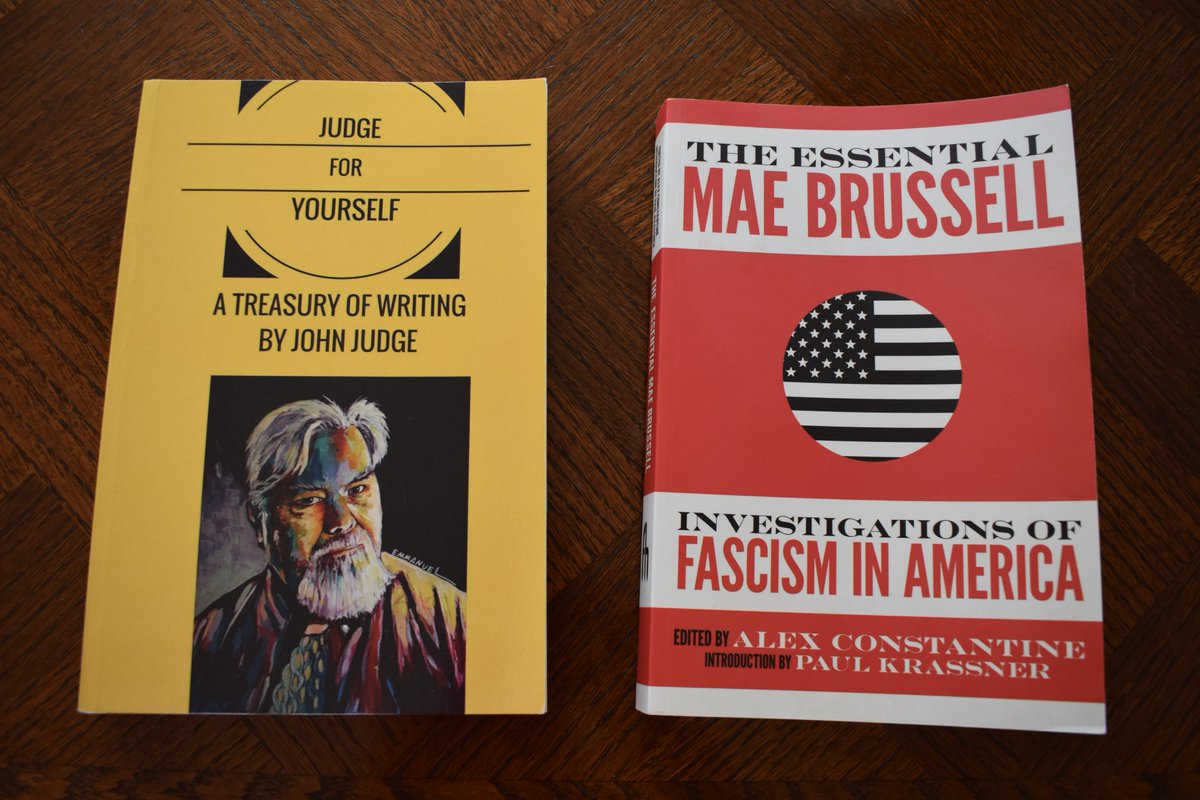
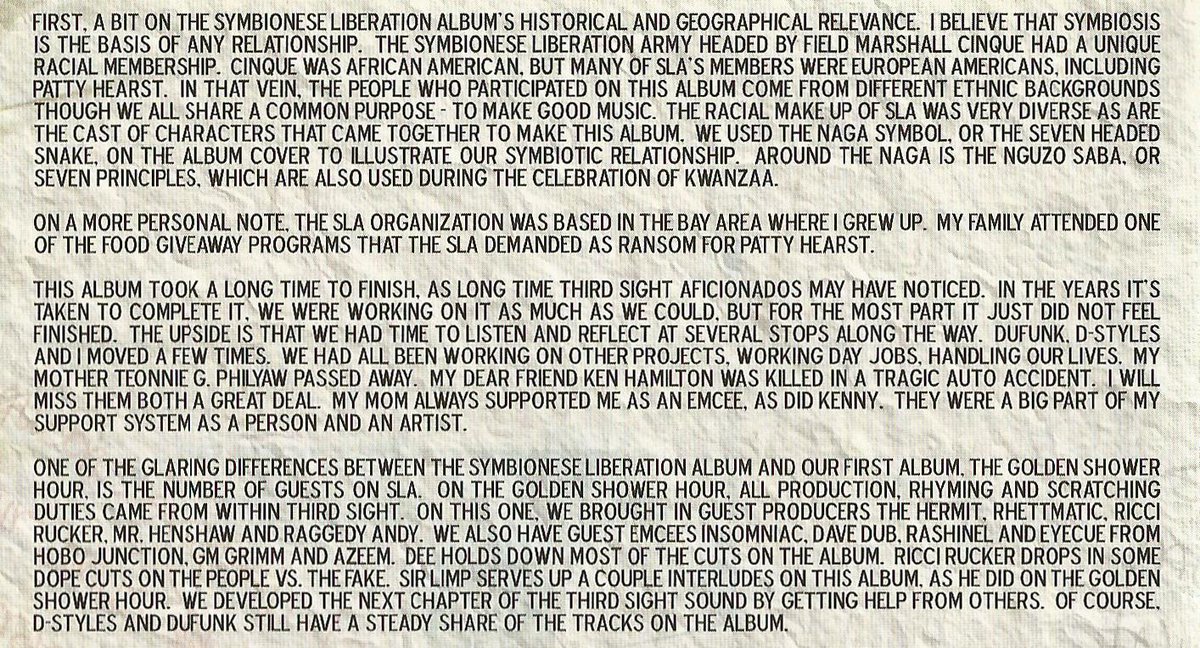
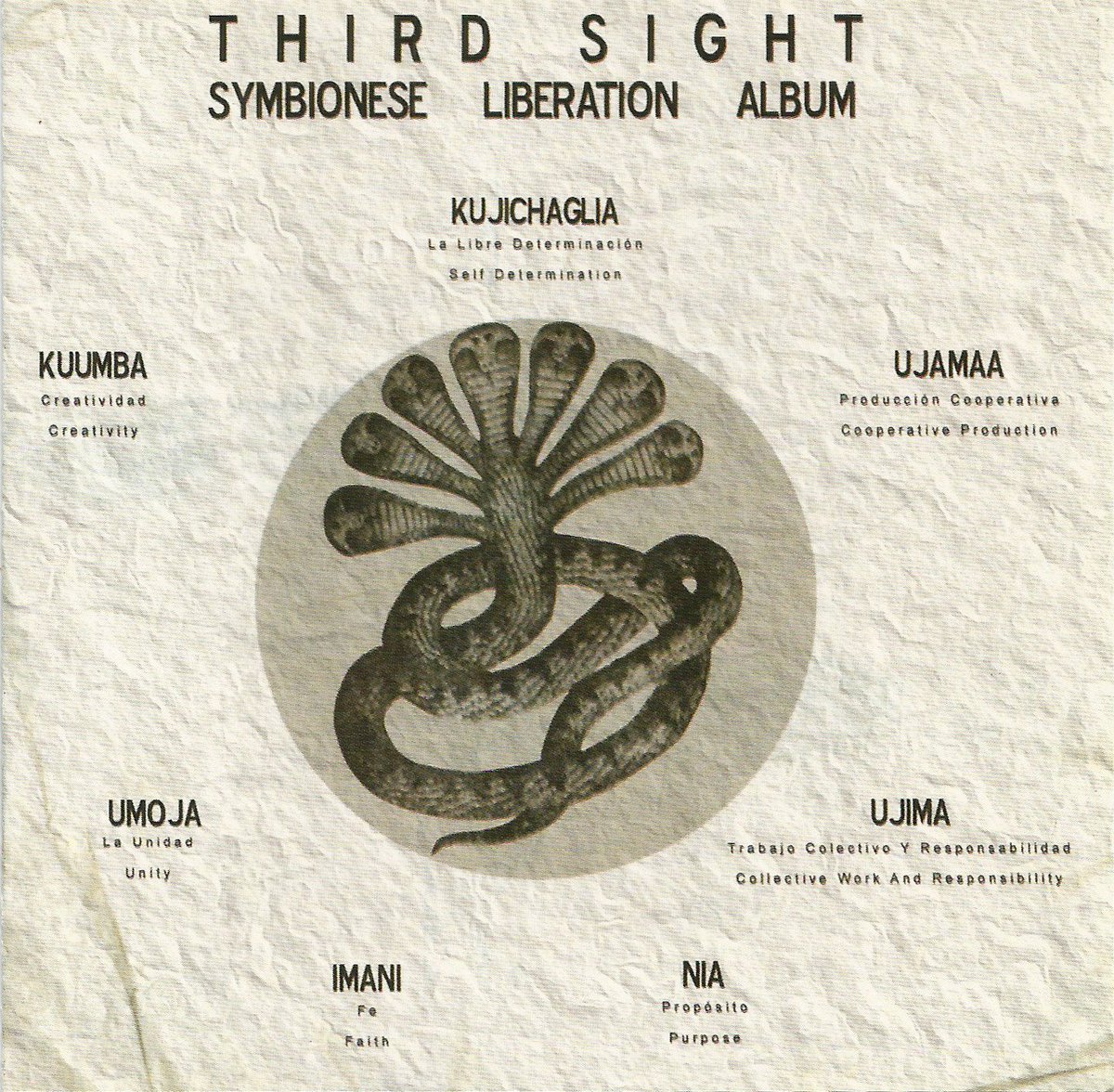


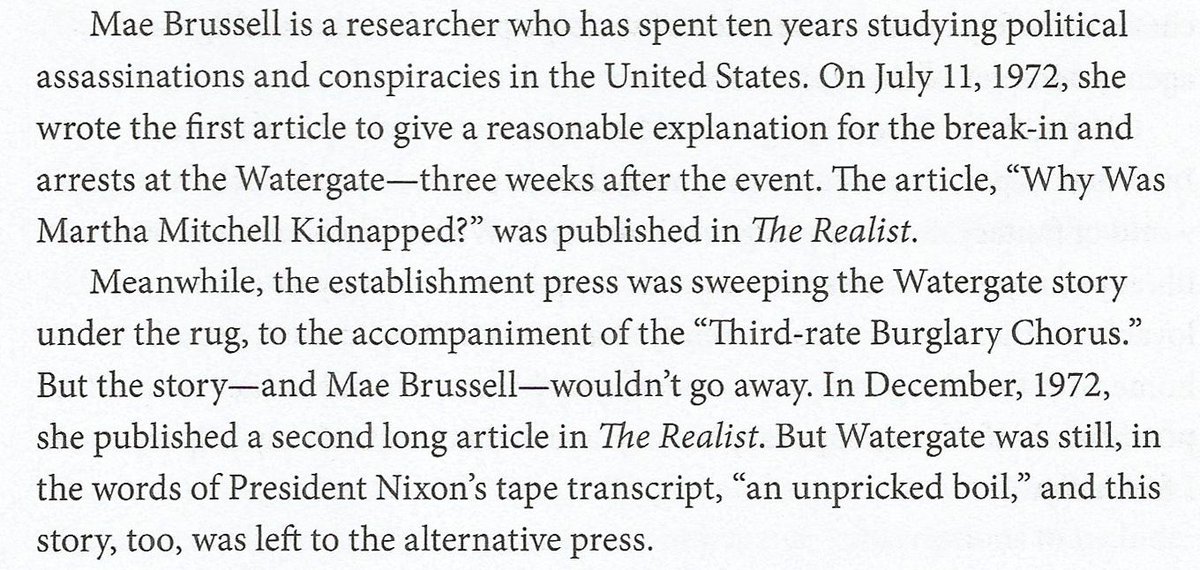
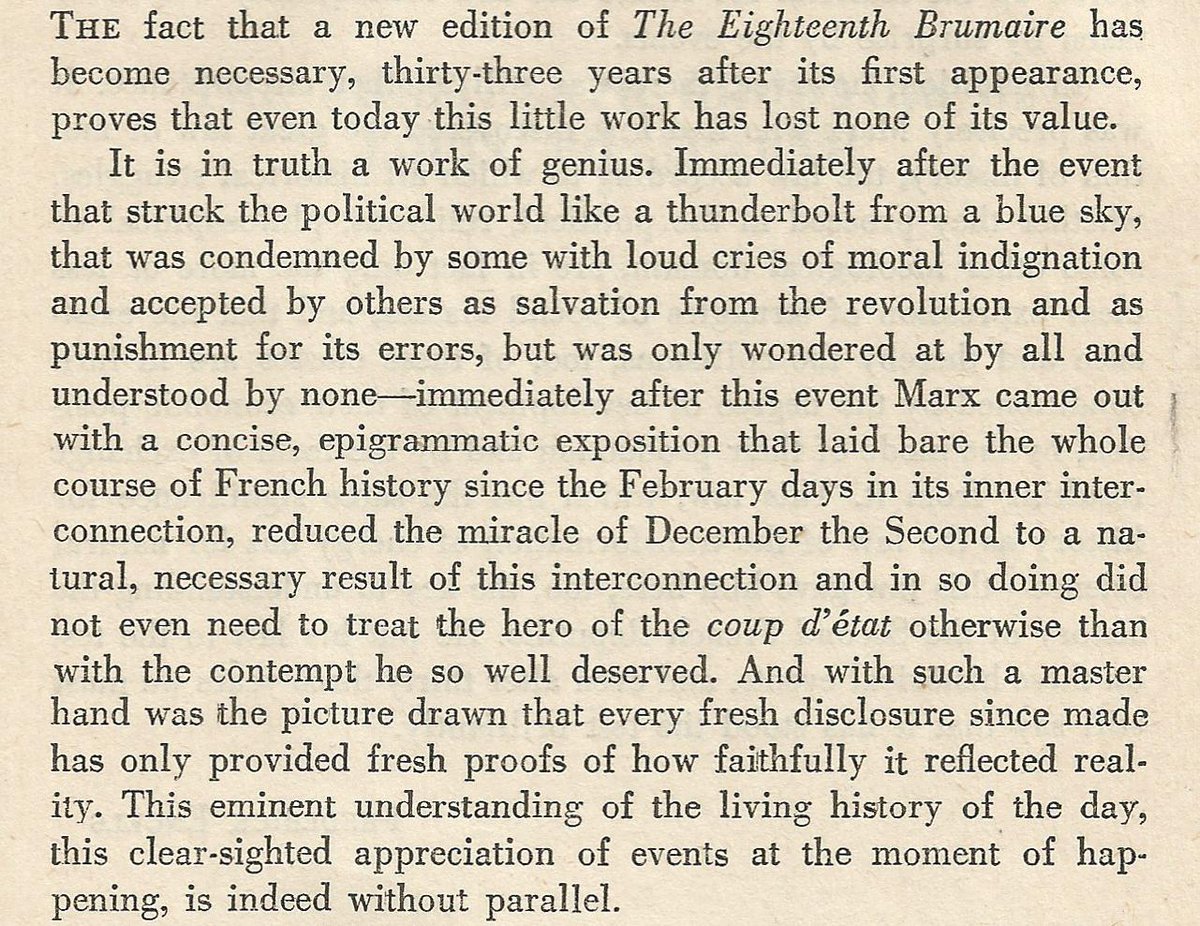

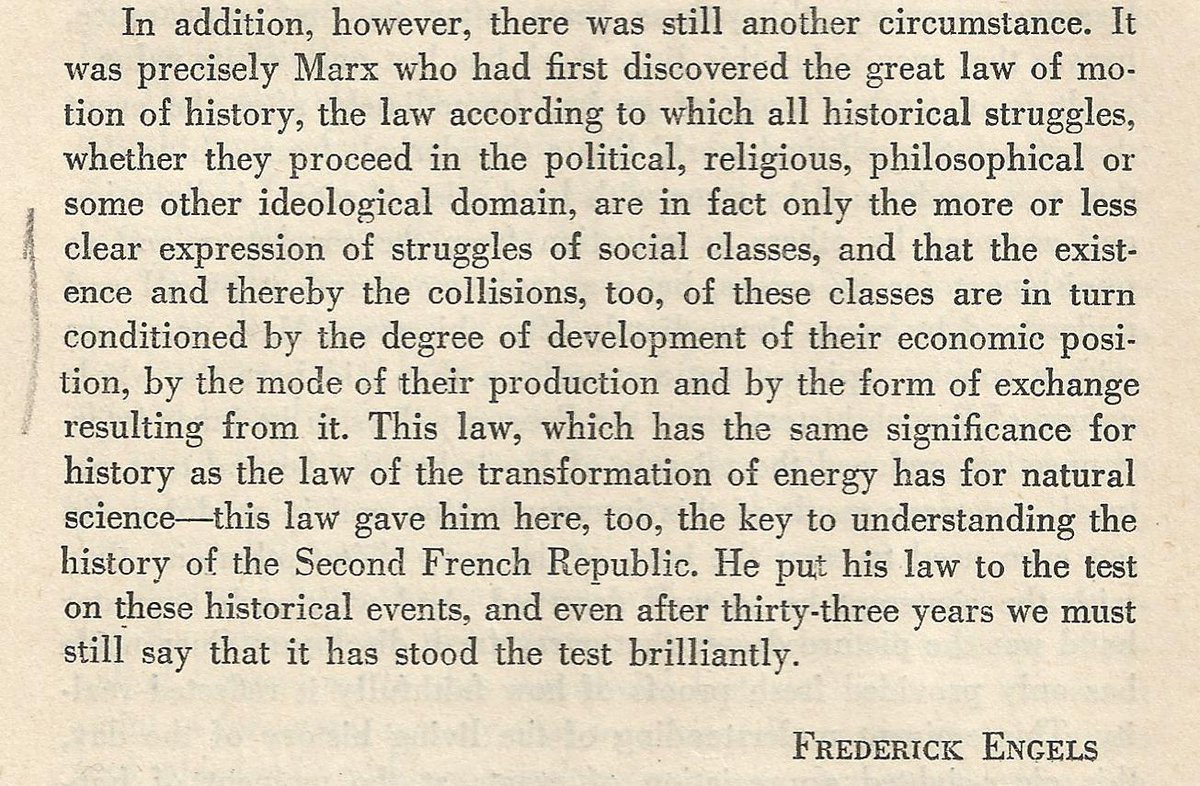

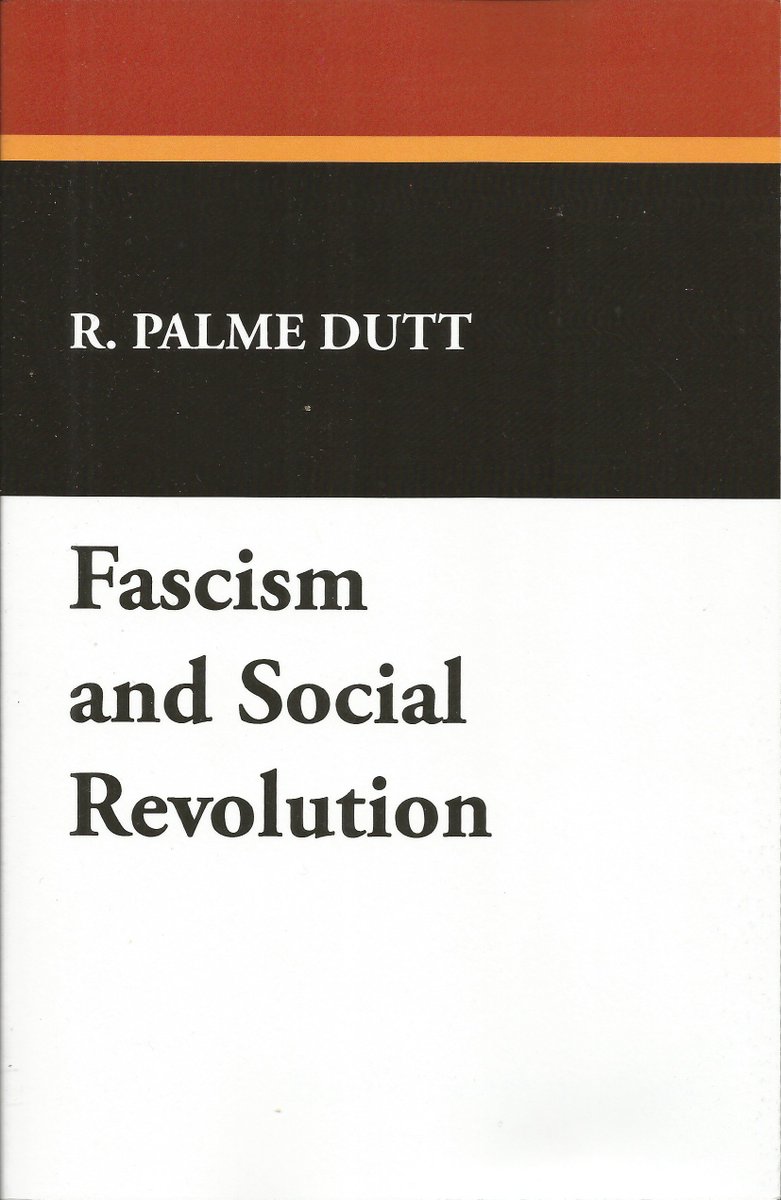
![Yet Brussell insists that “our democracy” was subverted, that cunning German Nazis were responsible for “the transformation of a once democratic nation [!!!] into the fascist state we have today.” Unsavoury means, perhaps, but a noble end (fighting “totalitarian” communism)… Yet Brussell insists that “our democracy” was subverted, that cunning German Nazis were responsible for “the transformation of a once democratic nation [!!!] into the fascist state we have today.” Unsavoury means, perhaps, but a noble end (fighting “totalitarian” communism)…](https://pbs.twimg.com/media/ECw1VhUW4AA1Vx8.jpg)

